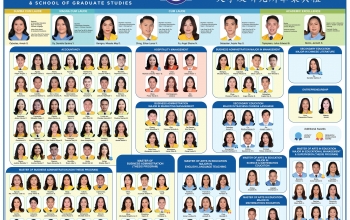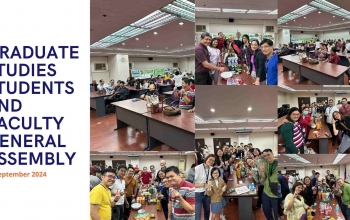About Chiang Kai Shek College
- Last Updated on November 13, 2014 3:49 PM
Chiang Kai Shek is a non-stock, non-profit, and non-sectarian private school whose primary objectives are to
- form and train educated, competent leaders for the developing society;
- develop a citizenry prepared and strengthened for nation-building;
- serve as nucleus for the interflow of Eastern and Western culture; and
- serve as a working force in the enhancement of Filipino-Chinese friendship and mutual understanding.
Ideally, CKSC education helps shape the student's potential to the fullest as a human being by tapping his/her innate talent and by inculcating love of country and respect for rules and order, without ignoring the enriching value of internationalism.
To carry out these goals, CKSC challenges the members of its academic community to lead their lives along four Confucian virtues 禮 (li) - propriety, 義 (yi) - righteousness, 廉 (lian) - incorruptibility, and 恥 (chi) - honor.
Concomitant to attaining these values are the cultivation and sustenance of one's 德 (de) - morality, 智 (zhi) - wisdom, and 體 (ti) - physical well being, so as to foster 群 (qun) - unity. Ultimately, such desiderata help create in the CKSC students/graduates sense of reaching out for 美 (mei) beauty.
CKSC further believes that
- true education aims at the formation of a person whose ultimate end is to be of service to the society to which he/she belongs;
- young people must be helped to develop harmoniously their physical, moral, and intellectual endowments so that they may gradually acquire a mature sense of responsibility in striving endlessly to form their own lives properly and in pursuing true freedom as they surmount the vicissitudes of life with courage and constancy;
- all educational institutions shall inculcate patriotism and nationalism, foster love of humanity, respect for human rights, appreciation for the role of national heroes in the historical development of the country, teach the rights and duties of citizenship, strengthen ethical and spiritual values, develop moral character and personal discipline, encourage critical and creative thinking, broaden scientific and technological knowledge, and promote vocational efficiency (Philippine Constitution); and
- its students should be for the manifold demands of social, scientific, and technological efficiency needed in the field of business, arts, and sciences, and should temper this training with the inculcation of genuine love for work and the virtues of a value-based individual.




.jpg)




.jpg)
